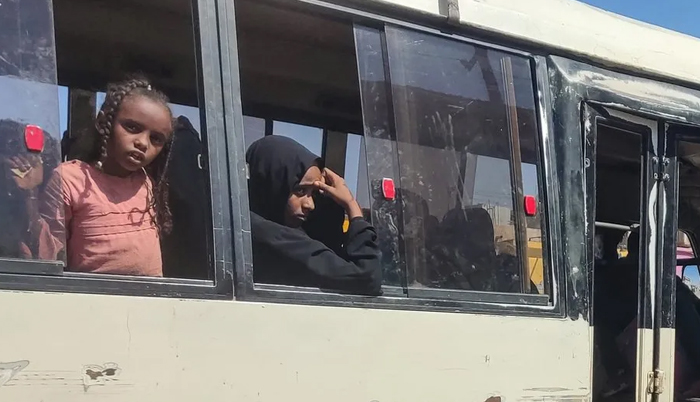
WAD MADANI (Sudan), Dec 21 (NNN-AGENCIES) — At least 250,000 people have fled fighting in a Sudanese state once seen as a safe haven for those escaping the civil war, the UN said.
The paramilitary Rapid Support Forces (RSF) have advanced into the city of Wad Madani, in al Jazira state.
For months, both the state and the city have housed large numbers seeking safety from fighting in the capital.
Many in Wad Madani have fled the city without having anywhere to go, a resident said.
“So many people are wandering, there is no transportation, nothing to take us, many people do not know where to go, they are just running away,” Ahamed Fadol, who moved to Wad Madani from the capital, Khartoum, after the conflict began, said.
As people have been leaving the city over the past few days, the cost of transport has climbed. On Tuesday, no transport was available at all.
As a result, Fadol walked for three hours to seek refuge in a village called Marnjan.
Eissa Mussa also found himself fleeing for a second time on Tuesday – he had initially left Khartoum after her home in the south of the city was bombed several times.
The 38-year-old said: “I got on a lorry after being exhausted and fled [Wad Madani] to Blue Nile state, I didn’t want to wait like last time when I was in Khartoum.”
Residents of the city said the RSF – who are fighting the army – had attacked a hospital and taken over a military base.
In a post on X, formerly Twitter, the RSF said: “We seized control of the SAF [Sudan army] First Infantry Division in Wad Madani. Our operation included the liberation of the central reserve camp and the strategic Hantoub bridge from the eastern side.”
Elsewhere on social media, RSF chief Mohamed Hamadan Dagalo, better known as Hemedti, alleged that his fighters attacked Wad Madani after learning that the army and leaders of the former regime were preparing an offensive on Khartoum.
On Tuesday evening, four days after the RSF began attacking Wad Madani, the army released a statement saying it will investigate how its forces managed to lose control of the city.
When the war broke out in April, the city replaced Khartoum as a hub for international humanitarian organisations.
Many of these non-profit organisations have left over the past few days, with some heading towards the Sennar and Gadrif. However, RSF fighters on social media have now threatened to attack those cities too.
There is also speculation the RSF may attack Kosti, a city in the south where many Wad Madani residents fled to.
Will Carter, Sudan director for the Norwegian Refugee Council, said: “We still have our international staff there for the moment, but many organisations have left, some of our Sudanese staff have also left to be with their families. It’s very tough.”
Wad Madani’s only cancer treatment centre has closed in the wake of the fighting, along with all of its hospitals and pharmacies. Houses and offices have been looted by armed groups and civilians.
Over the weekend, the US State Department called on the RSF to cease its advance on Wad Madani.
Washington said the group’s actions were inconsistent with its stated aim of protecting Sudanese civilians.
Unicef’s Sudan director, who was recently in Wad Madani, said: “I’ve heard bone-chilling stories from children and women of their harrowing journeys from Darfur and Khartoum into Madani city. That was last week.”
Mandeep O’Brien said: “You can imagine now these very same children and women are being forced to flee a second time, and probably for some a third time… it has been very emotional, very traumatic, especially for the children.”
There are also reports of renewed fighting in the city of Nyala in Sudan’s western Darfur region.
The RSF and the army had shared power with civilians after the 2019 overthrow of former strongman Omar al-Bashir, before staging a coup together in 2021.
War between the two sides erupted in April this year following disagreement over an internationally backed political transition plan.
The conflict has displaced more than seven million people, left Khartoum in ruins, caused a humanitarian crisis and triggered ethnically driven killings in Darfur. — NNN-AGENCIES






